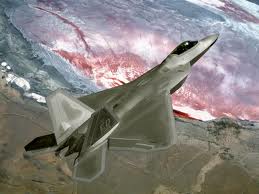72 posts
• Page 1 of 3 • 1, 2, 3
PC Gaming during the 90's
-

Kahli St Dennis - Posts: 3517
- Joined: Tue Jun 13, 2006 1:57 am
Now companies like EA are saying a game needs 5 million sales to be able to live.
-

Nick Swan - Posts: 3511
- Joined: Sat Dec 01, 2007 1:34 pm
The paradigm shift happened around the launch of the 360, when many developers people considered as the vanguard of PC gaming suddenly enjoyed huge success in that market and pushed out the formerly dominant Japanese developers to near irrelevance. It was probably the more PC-friendly architecture of the hardware which acted as a catalyst for this trend, as development on consoles prior to that had typically been very different from PC development.
-

Tracey Duncan - Posts: 3299
- Joined: Wed Apr 18, 2007 9:32 am
Can I ask what games for PC from the 90s your talking about? Chances are i've played them but considering I was born in the middle of the 90s I'm suddenly worried I've missed out.
-

OTTO - Posts: 3367
- Joined: Thu May 17, 2007 6:22 pm
Now companies like EA are saying a game needs 5 million sales to be able to live.
Yeah, because they spend half of that developing their overbudgeted, recycled garbage. You don't see Notch complaining about development costs.
-

maddison - Posts: 3498
- Joined: Sat Mar 10, 2007 9:22 pm
Because PC gaming was an untapped niche market where you could make a game to appeal to a small subsect of the population who would loyally follow that genre or product. But today PC gaming has a broader customer base, and in order to appease as many people as possible, they make games with a more broader customer range. While opinion is subjective so what is good to me is bad and you good and vice versa, others just don't care and like the game because they just do. While this may make the nostalgia tinted glasses of others or those who just dont enjoy modern gaming complain, the fact is is that financially it works so they keep doing it, even games once holding a niche audience are being 'streamlined to appeal to a broader customer base', which in a lot of cases, reduces the difficulty or uniqueness its predecessors had, and makes it more simple or to some, 'dumbed down'.
TL;DR: Times be a changin' bro.
TL;DR: Times be a changin' bro.
-

katsomaya Sanchez - Posts: 3368
- Joined: Tue Jun 13, 2006 5:03 am
A lot of games back then were self-published too, so the developers had more creative control.
-

maya papps - Posts: 3468
- Joined: Mon Aug 07, 2006 3:44 pm
Yeah, because they spend half of that developing their overbudgeted, recycled garbage. You don't see Notch complaining about development costs.
-

JLG - Posts: 3364
- Joined: Fri Oct 19, 2007 7:42 pm
I seriously don't understand how development costs can be so high for some of these triple AAA titles, sorry I mean "AAA" titles. Overpaid voice actors.... um whats next? Engine.... hmm whats next? 100 million cost! Um what? Must be missing something somewhere... how can it cost that much to make a game?!
Most likely related to the obsession with turning their games into cinematic blockbuster experiences. Stuff like programming and leveling design is relatively cheap, not so much can be said for voice acting, tons of motion-capture, scripted extravagant set pieces, etc.
-

k a t e - Posts: 3378
- Joined: Fri Jan 19, 2007 9:00 am
I seriously don't understand how development costs can be so high for some of these triple AAA titles, sorry I mean "AAA" titles. Overpaid voice actors.... um whats next? Engine.... hmm whats next? 100 million cost! Um what? Must be missing something somewhere... how can it cost that much to make a game?!
-

Michelle Smith - Posts: 3417
- Joined: Wed Nov 15, 2006 2:03 am
Video gaming as an industry got bigger. Niche genres like adventure and RTS died out, and AAA titles with inflated budgets in the hundreds of millions of dollars began to be produced.
Now companies like EA are saying a game needs 5 million sales to be able to live.
Now companies like EA are saying a game needs 5 million sales to be able to live.
When indies in any field succeed, the people with money note this, and move in. It has happened repeatedly in the past: films, radio, records, television production, etc. The Industry takes over, sees what sells best--which is usually done along with the assumption that nothing must change; success is simply repeatable, where change can lead to loss of sales. So the indies made all sorts of things on small budgets with a wild, varied bunch of notions, and then industry came along, upped the graphics, brought in big name voices, and grabbed all the programming talent. Which was promptly told what kind of game they would produce.
There are a ton of factual stories that could be told about this. I'll throw in one, deleting the names: four guys who were doctors up in a Canadian province loved playing AD&D over the cold, long winters. They learned programming skills to produce a game that would show their enthusiasm. This game was knocked about through three separate publishers, since they couldn't get it produced on time, but it was a huge success when it finally arrived. And so was its followup. And then the suits moved in, and what they produced became a formula. Three of the doctors sold their stock and moved on. Eventually, years later, so did the fourth. The name of the company is still the same, but it's run by Industry suits who have no interest in games--only in the bottom line of how much expenditures and revenues are realized.
Fortunately, indies have begun to take root, again. Programmers have begun to realize that there's a good economic model for selling successfully on the Web. You won't end up making millions, but you will end up developing what you like, and making a living. Which to some, is worth more than selling yourself and your soul.
-

Pixie - Posts: 3430
- Joined: Sat Oct 07, 2006 4:50 am
I seriously don't understand how development costs can be so high for some of these triple AAA titles, sorry I mean "AAA" titles. Overpaid voice actors.... um whats next? Engine.... hmm whats next? 100 million cost! Um what? Must be missing something somewhere... how can it cost that much to make a game?!
I wouldn't care a single bit about the extremely high budgets if the gameplay reflected them. But more than not, it's the graphics, voice acting, set pieces and production values that reflect the money that went into the games. The games should play as good as they look and sound, bottom line.
-

YO MAma - Posts: 3321
- Joined: Thu Dec 21, 2006 8:24 am
Can I ask what games for PC from the 90s your talking about? Chances are i've played them but considering I was born in the middle of the 90s I'm suddenly worried I've missed out.
-

Charlotte X - Posts: 3318
- Joined: Thu Dec 07, 2006 2:53 am
They hire people for motion capture now I think, rather than animate the characters manually. I dunno if that would cost more or less though.
-

Eve(G) - Posts: 3546
- Joined: Tue Oct 23, 2007 11:45 am
Keep in mind it's not just mocap for player and enemy actions, they need it for entire scripted scenes to play out fluidly. As I said it all comes back to the cinematic aspect that has overtaken mainstream design this generation.
-

Star Dunkels Macmillan - Posts: 3421
- Joined: Thu Aug 31, 2006 4:00 pm
I was born in 1995. I am referring to 90's game in general. Usually the ones that were point and click adventures, sci-fi, FPS, etc.

Keep in mind it's not just mocap for player and enemy actions, they need it for entire scripted scenes to play out fluidly. As I said it all comes back to the cinematic aspect that has overtaken mainstream design this generation.
-

Marie Maillos - Posts: 3403
- Joined: Wed Mar 21, 2007 4:39 pm
They hire people for motion capture now I think, rather than animate the characters manually. I dunno if that would cost more or less though.
-

Alexandra walker - Posts: 3441
- Joined: Wed Sep 13, 2006 2:50 am
Keep in mind it's not just mocap for player and enemy actions, they need it for entire scripted scenes to play out fluidly. As I said it all comes back to the cinematic aspect that has overtaken mainstream design this generation.
-

R.I.P - Posts: 3370
- Joined: Sat Dec 01, 2007 8:11 pm
So its not just me, thank goodness. I start feeling like an old woman whenever I say things like 'back in my day games were so much better than...*insert old people rant*' 


-

Elena Alina - Posts: 3415
- Joined: Sun Apr 01, 2007 7:24 am
Yeah, look at Minecraft. I imagine its budget expenses are unbelievably lower than what say...A game by Rockstar or Bethesda would be.
-

i grind hard - Posts: 3463
- Joined: Sat Aug 18, 2007 2:58 am
Keep in mind it's not just mocap for player and enemy actions, they need it for entire scripted scenes to play out fluidly. As I said it all comes back to the cinematic aspect that has overtaken mainstream design this generation.
Which I don't understand. Movies exist so we can watch action, drama, fantasy and such. Video games exist so we can play them. So why in the hell am I still spending so much time watching? You often run into situations where you paid $60 for a 4-hour action film, especially if you have no interest in the multiplayer. I would gladly take worse acting and worse graphics if that was the price to get the gameplay up to where it's supposed to be. Games aren't supposed to mimic movies, the gameplay should be so good that simply playing creates a movie-like effect. One of the shining examples of this is the Devil May Cry franchise - hardly a single QTE in sight and yet the gameplay itself is so amazing that it looks like a movie. That, to me, is good game design.
-

Sammygirl - Posts: 3378
- Joined: Fri Jun 16, 2006 6:15 pm
Yet notch has made millions of dollars from it.
-

stevie critchley - Posts: 3404
- Joined: Sat Oct 28, 2006 4:36 pm
If the 90's is the golden age then the very end of the 00's and 2010 looks to be its renaissance. I only got a PC in 2000, so I don't have any PC gaming memories from the 90's. Though I will say I do remember the gradual slip in quality of PC games to being very very terrible port jobs which was at its zenith a few years back. Steam began to change things, hence the renaissance.
-

N3T4 - Posts: 3428
- Joined: Wed Aug 08, 2007 8:36 pm
The '90s was a real dark age of gaming for me. I enjoyed computer games in the 1980s and 2000s, but the 1990s were just a real turn-off. Possibly personal circumstances, but I'd bet the same is true of people who view it as some sort of golden age: perhaps for them personally, it's maybe a time they remember with nostalgia, but it was nothing special.
-

Bird - Posts: 3492
- Joined: Fri Nov 30, 2007 12:45 am
72 posts
• Page 1 of 3 • 1, 2, 3
